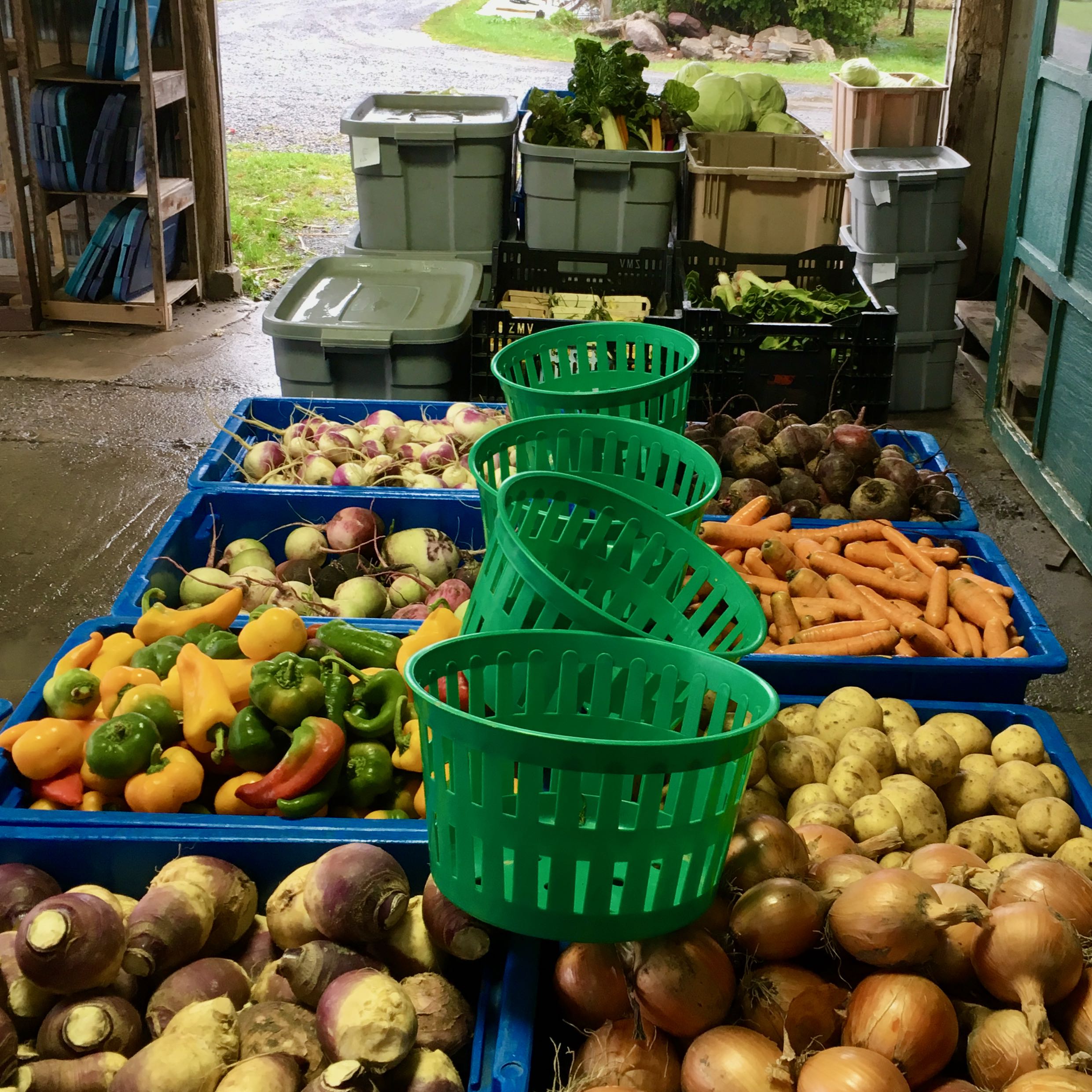Feeding Quebecers—alumni-founded Ferme Coopérative Tourne-Sol is thriving

Ferme Coopérative Tourne-Sol, founded by five McGill graduates, supplies fresh, organic produce to about 700 families, and, with its seed business and planning tools, is giving a boost to fellow farmers and gardeners
By François Shalom for the McGill Reporter
“We’re a Quebec business, we feed Quebecers. About 700 Quebec families eat well thanks to us. They eat organic, locally grown food—healthy food—and that’s important.” Â
Daniel Brisebois, who has an agricultural engineering degree from Ď㽶ĘÓƵ, founded Ferme CoopĂ©rative Tourne-Sol in 2004 along with four other McGill grads; four of the five studied at Macdonald Campus. Their seven-hectare farm is in Les Cèdres, just west of Montreal. The co-operative’s mission is to do its part to make high-quality, innovative and healthy organic produce available throughout Quebec. Having grown over the past two decades despite sometimes difficult circumstances, today the award-winning co-operative counts 11 members and nine employees. Â
The co-operative’s success has led Brisebois and another of the founders, FrĂ©dĂ©ric ThĂ©riault, to develop second careers for themselves as farming educators.Â
“At the beginning, the focus was mainly on market gardening. We sold baskets of organic produce to subscribers and also sold our produce at the market,” explained Brisebois.Â
Tourne-Sol no longer sells at markets, but now delivers more than 500 baskets of vegetables and other organic products to its subscribers each week, at about $40 per basket.Â
Seeds adapted for use in QuebecÂ
Eventually, Tourne-Sol branched out into the seed business. It produces some of the seeds itself and buys some from other producers, selling them across Quebec. Â
“We sell to farmers, but especially to gardeners, garden centres and natural-product boutiques,” Brisebois said.Â

Packets of Tourne-Sol’s seeds for arugula, carrots, beans, lettuce, cucumbers, radishes, potatoes, herbs, flowers and so on, all meeting budding gardeners’ demand for seeds suitable for use in Quebec, can be found at about 200 points of sale throughout the province.Â
Co-founder FrĂ©dĂ©ric ThĂ©riault explains the Quebec market requires highly specialized seeds. Winter arrives earlier and lasts longer than it does in many other places, so varieties are needed that mature quickly. Â
This is especially true for tomato seeds, which most commonly have been developed for the United States, where the climate is much milder. When planted in Quebec, those seeds produce tomatoes whose quality and taste are often disappointing.Â
The solution? ThĂ©riault and Brisebois recommend early seeds developed by Tourne-Sol specifically for the climate of southern Quebec. Â
“We began with two hybrid tomatoes,” said ThĂ©riault. “And we were about to develop a seed that genetically was improved in terms of colour, taste and shape; a variety of tomato resistant to certain crop diseases present here. One thing led to another, and after experimenting over several years, we created a unique, cold-resistant variety that is particularly well adapted to Quebec.”Â
Economic and social benefits for QuebecÂ
ThĂ©riault, who has a Master of Science in agricultural and environmental science, stresses the benefits offered by a business like Tourne-Sol, not only in terms of jobs and good nutrition, but also other economic benefits that help build stronger communities in Quebec.Â
“People talk about the social benefits—better health that translates into savings for our health-care system—but don’t forget all the money we spend on supplies from local businesses, something that creates additional jobs. We spend quite a bit in hardware stores, for example.”Â
Sustainable agriculture that contributes to food sovereigntyÂ
The fact that Tourne-Sol meets pretty much all of the objectives in the Quebec agricultural ministry’s  is among its many virtues. Â
Brisebois notes that one lesson of the pandemic, during which borders were sometimes closed and supply chains disrupted, was just how valuable food sovereignty is to Quebec.Â
“It’s important to be able to feed ourselves as a people, and seed producers play a key role.”Â
And it shouldn’t be forgotten that, unlike with major industrial food producers, organic foods’ economic benefits almost entirely remain with the local producer, a considerable economic benefit for Quebecers.Â
Planning tools to help farmersÂ
Over the years, Brisebois and ThĂ©riault increasingly have taken on an educational mission. Â
Brisebois created and developed tools—two spreadsheets—that help farmers plan their crops and manage their businesses. He also has developed training programs for seed-growers. These activities have come to occupy almost half his time. Â
“Most people don’t choose agriculture because they love managing. They want to work with their hands, be outdoors—they like tractors. So, I provide tools to make the managing side of things a little easier,” said Brisebois.Â
He offers two levels of software: a basic spreadsheet and one for those who want to track things in a more detailed way.Â
Brisebois also has a new book coming out this fall, The Seed Farmer: A Complete Guide to Growing, Using, and Selling Your Own Seeds, and is confident that he will also be able to find a publisher for a French version. Â
The benefits of the co-operative modelÂ
For his part, ThĂ©riault, in addition to his management responsibilities for Tourne-Sol, conducts training, publishes a newsletter, produces videos and leads workshops for adults and children.Â
He notes that the co-operative model has advantages:Â
“The wages are viable; decisions are made collectively and it’s good for assuring that there will be others to take over; it assures the co-operative’s future. Those are also benefits to Quebec. As well, it will be easier for me to retire, because the co-operative model allows us to gradually prepare the business’s next generation, and our successors won’t have to make massive investments.”Â